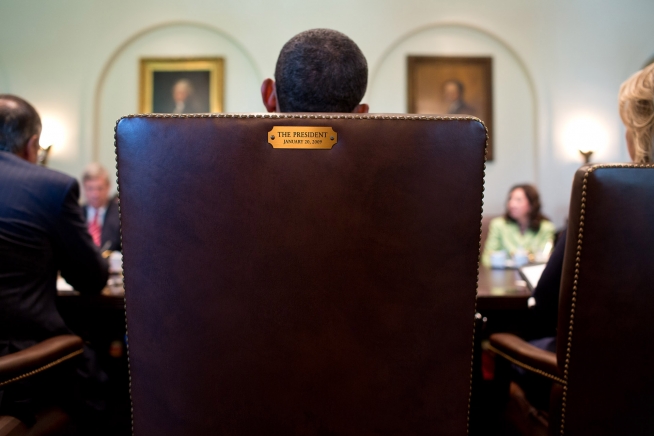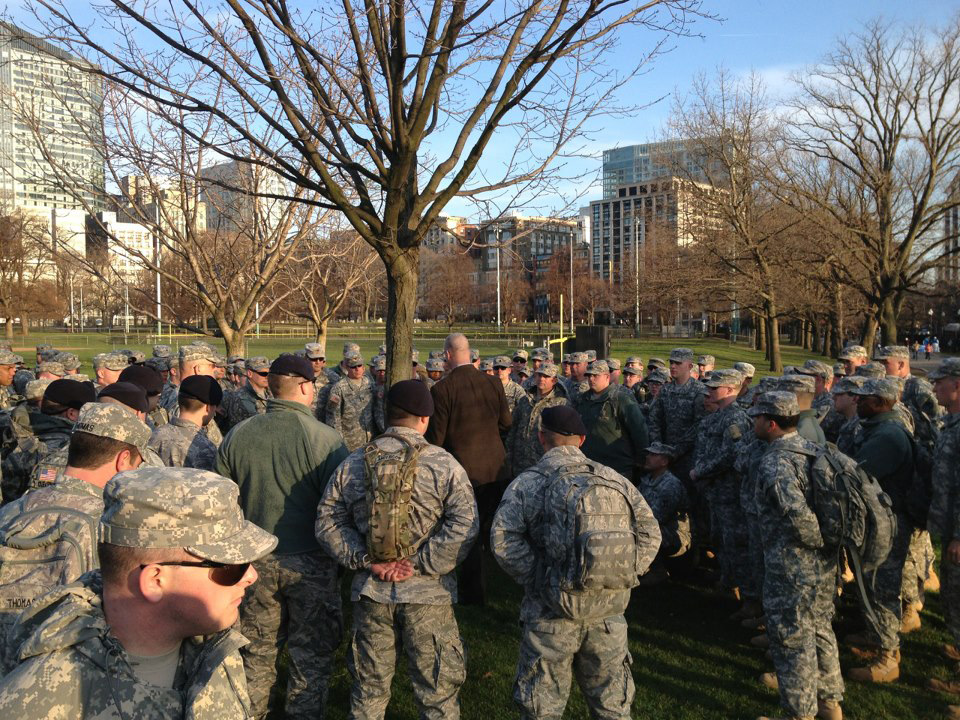Yesterday I attended a press conference held by the brand new Ron Paul Institute for Peace and Prosperity, an educational 501(c)(3) that will collect and produce news and commentary on US foreign policy and put on seminars to teach primarily young people about non-interventionism.
 As previously noted, the executive director of the Institute is Daniel McAdams, the foreign policy advisor to Paul when he was still in the House of Representatives. After Dan’s introduction, Ron Paul spoke, along with Rep. John Duncan (R-TN), the last Republican in Congress who voted against the Iraq War, Rep. Walter Jones, Jr. (R-NC), and former Rep. Dennis Kucinich (D-OH) – all of whom are on the board of the Institute. Rep. Thomas Massie (R-KY) also spoke.
As previously noted, the executive director of the Institute is Daniel McAdams, the foreign policy advisor to Paul when he was still in the House of Representatives. After Dan’s introduction, Ron Paul spoke, along with Rep. John Duncan (R-TN), the last Republican in Congress who voted against the Iraq War, Rep. Walter Jones, Jr. (R-NC), and former Rep. Dennis Kucinich (D-OH) – all of whom are on the board of the Institute. Rep. Thomas Massie (R-KY) also spoke.
Aside from the educational website and seminars, the Institute will follow congressional votes and grade members of Congress according to their adherence to non-interventionism and protection of civil liberties.
That the Ron Paul Paul Institute’s primary focus will be foreign policy is very fitting. Paul’s two historic presidential campaigns in 2008 and 2012 invigorated the libertarian movement in an unprecedented way, bringing countless newbies and converts into the ideas of free markets, limited government and peace.
As much as Paul rejuvenated the libertarian movement, there still exists a longstanding habit among many leaders and organizations to underemphasize the importance of foreign policy. It’s harder to persuade people that flag-waving and militarism runs counter to peace, liberty and prosperity, I guess. So, there is a serious need for a more prominent stand on a non-interventionist foreign policy and that’s a demand the Ron Paul Institute seeks to fulfill.
Ron Paul helped popularize Randolph Bourne’s famous remark that “war is the health of the state.” That also happens to be Antiwar.com’s motto. Naturally, we’re excited to see where this goes.
Update: RT has posted a short segment of the press conference:





